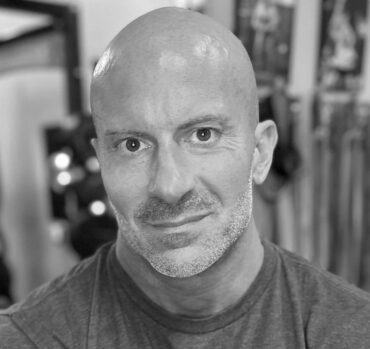“If I was in charge of the fitness industry, I would make it mandatory that you have to train real people in person for five years [before becoming an online coach],” says legendary strength coach Joe DeFranco. “And be good at it. Like, get results with them – not just put the time in because you could do something half-assed and still suck at it. I want you to do it for five years and obsess over it and get great at it.”
When barriers to entry in the online fitness coaching world are at an all-time low, DeFranco – who has trained athletes from all 32 NFL teams – raises a vital point: Are trainers ready to build online programmes without first mastering their craft in person? For DeFranco, the answer is a firm “no.” With decades of experience coaching elite athletes and helping trainers build thriving businesses, DeFranco insists that real-world, hands-on coaching experience is essential for success. His advice? Spend at least five years working directly with clients, getting real results and building a reputation. Only then, he says, should trainers consider taking their services online. DeFranco recently spoke to Unfiltered to lay out his advice for becoming a great trainer – emphasising that shortcuts don’t cut it.
Don’t try to build an empire in week one
Don’t try to build a fitness business empire the week after you get your personal training qualification. Instead, concentrate on becoming a great trainer. “Focus on one thing,” says DeFranco. “Be great at that one thing. Make the training – the personal training – the foundation, and then watch after five years what happens. You’re going to get other [business] opportunities. But if you try to do it all at once, you’re going to end up getting no opportunities because you’re going to spread yourself too thin and you’re going to have four or five below-average business and revenue streams.”
Take time to master your craft
DeFranco began his training career with a strength and conditioning background and then a prestigious internship focused on athlete performance. “When I graduated, I got an internship at the Parisi Speed School, which at the time was the only facility that had a programme exclusively for athletes” he says. “I very quickly showed that I was obsessed with this stuff and kind of worked my way up the food chain to become top one or two guys in that company. And I was there for five years training athletes and gaining experience before then opening up my own gym.”
Let your work be your calling card
Build your reputation and track record, and let others sing your praises. “I didn’t focus on anything else but being the best damn personal trainer in the world,” says DeFranco. “That was my goal. I want to be the best. I am going to overdeliver for every single client that walks through this door. And because I did that for a decade plus, then these other opportunities came up where people said, oh, I’d love to learn your system. The reason you see the multiple revenue streams that I have: the app, our own training certification, the podcast, I have all those things because I was really really freaking good at one thing for a decade.”
Turn disaster into triumph
Sometimes what feels like a disaster at the time can actually become a strength. DeFranco turned a debilitating career-ending injury to his advantage, allowing him to understand athletes’ unique needs, and to fuel his internal fire to be the best coach he could be. “Football was the sport,” says DeFranco. “First in the state, nationally ranked, the whole deal. We ended up being undefeated my junior and senior year, 22-0, nationally ranked state champs. I was the captain, getting scholarship offers. And then literally I wake up, senior year training camp over the summer, I wake up in the morning with severe nerve pain shooting down my leg. I play but I’m in excruciating pain and then the next four years are just me going to doctors going to specialists every week.” The lesson: Setbacks will happen so try to find a way to turn them to your advantage.
Find your why
Having a clear ‘why’ can be a key factor in your success. “I want to help other athletes, whether it’s football or another sport, achieve their goals and their dreams, the things I wasn’t able to accomplish. Maybe I could find some happiness and joy in helping other high school kids get a scholarship or make the team or college kids get to the NFL. And that’s what I focused literally all my attention on, tunnel vision, obsession, whatever you want to call it. It was all in on that,” says DeFranco.





